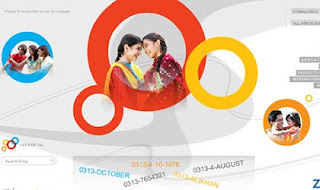
... all we need is LOVE! Well, for now only 2 guys, Philip Rosedale and Ryan Downey (both former colleagues at Linden Lab and also best friends in real life) need is each other in their new venture called Love Machine. This looks and sounds crazy. And it just may be perceived to be so by the business community at large. Clearly, the deliberately weird and unorthodox web presence and blog of Love Machine Inc.
http://www.lovemachineinc.com/Home would probably not inspire many Fortune 500 HR VP's to launch a Love Machine Inc. product any day soon.
But there is more going on than meets the eye here. Linden's LOVE Machine as a tool is easy to do. It is pretty much just a simple hack. It is based on Jira; http://www.atlassian.com/software/jira/. Are you familiar with Jira? You should be if your in IT. Jira is a product of Aussie Software House Atlassian Pty Ltd. Here are some links on Atlassian's Jira product and the Linden customized LOVE Machine application;
http://blogs.atlassian.com/news/2006/06/jiras_second_li_1.html
http://blogs.atlassian.com/news/2006/12/love_grows_in_c.html
http://www.atlassian.com/software/jira/casestudies/linden.jspThe Linden application is very straightforward. Users email thanks (LOVE) with a limited number of characters (PG understands it is 180 character maximum, about the size of a standard SMS - 160) to other Linden's at the LOVE machine site / Jira portal at Linden's Intranet. Both the sendor and receiver, and the message content are transparently displayed. However, the users statistics (ie, the amount of thanks / LOVE sent and received, and the details thereof) is only available to admins and the user him or herself.
In Linden's 1st version of the LOVE machine only details regarding the message sent and the identity of the receiver were public. But about a year ago the LOVE Machine was updated to show the identity of both sender and receiver. The most recent LOVE given and received, e.g.; top 50, are visible at a given moment. There have been more interations recently.
So as a tool this is nothing special. But as an employee recognition, reward, incentivization scheme, bonus process or way or working it s unique and potentially transformational. So what is the purpose of this venture? Has PR figured it out?

Well, PG will help him and Ryan out - they are only 2 guys after all. PG thinks this tool could comprise the economic engine for an internal virtual world for an enterprise or organization where points (LOVE) are the in-world currency (think points rewards for performing employees ... whatever you want to call them) and are accumulated based on the amount of positive feedback (LOVE or thanks) given and received. This would create a true transparent level-playing field merit based economy where the first employee "millionaires" are those most helpful and engaging and in turn those most admired and respected by their colleagues. And so an organization knows a) who is useful, productive, respected and valuable and b) thus who to promote - rather than the good looking wankers who show up at meetings and say nothing.

So not only has PR birthed his new Love Child, this could also be a decent business venture. As PR said in an interview; "We think the Love Machine is one of the most interesting cultural things that we've done, and I know that many other companies are going to adopt it. I eagerly tell people about it whenever I can. The Love Machine is built around the idea of generating a token of appreciation for any other person in the company. It is a horizontal, decentralized way for employees to give each other mini peer reviews, which in turn they can use when they go to do their own quarterly performance reviews. So, anyone in Linden Lab can send a little 80-character piece of email that says, for example, "Thanks for a great job this week," which makes both the receiver and the sender feel good. If the right people are thanking you for your help, you know you're doing the right things. It's a fun system to use, and it gives us a way of rewarding and encouraging collaborative behavior, which is important as you move toward a decentralized, distributed model where there's a risk that people will become really competitive with each other. Linden Love is something that counters that tendency by providing a positive motive for everything. It's an important part of the way we work. We also pay a small bonus for each piece of Love, so everyone gets a little envelope every quarter. It's not enough to really modify behavior, but it's enough to buy your friends a round of drinks!"
Sounds crazy? Yes. But does it work and have potential - absolutely!
Good luck dudes.


















































